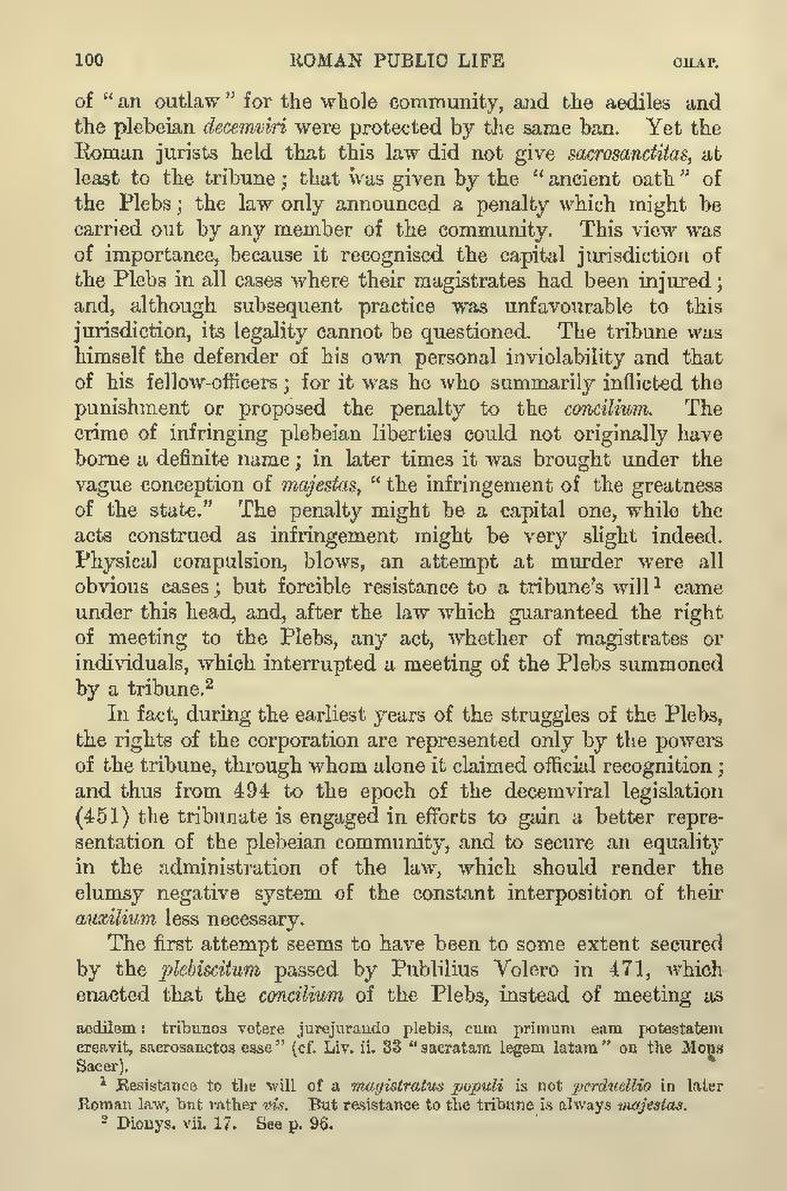of "an outlaw" for the whole community, and the aediles and the plebeian decemviri were protected by the same ban. Yet the Roman jurists held that this law did not give sacrosanctitas, at least to the tribune; that was given by the "ancient oath" of the Plebs; the law only announced a penalty which might be carried out by any member of the community. This view was of importance, because it recognised the capital jurisdiction of the Plebs in all cases where their magistrates had been injured; and, although subsequent practice was unfavourable to this jurisdiction, its legality cannot be questioned. The tribune was himself the defender of his own personal inviolability and that of his fellow-officers; for it was he who summarily inflicted the punishment or proposed the penalty to the concilium. The crime of infringing plebeian liberties could not originally have borne a definite name; in later times it was brought under the vague conception of majestas, "the infringement of the greatness of the state." The penalty might be a capital one, while the acts construed as infringement might be very slight indeed. Physical compulsion, blows, an attempt at murder were all obvious cases; but forcible resistance to a tribune's will[1] came under this head, and, after the law which guaranteed the right of meeting to the Plebs, any act, whether of magistrates or individuals, which interrupted a meeting of the Plebs summoned by a tribune.[2]
In fact, during the earliest years of the struggles of the Plebs, the rights of the corporation are represented only by the powers of the tribune, through whom alone it claimed official recognition; and thus from 494 to the epoch of the decemviral legislation (451) the tribunate is engaged in efforts to gain a better representation of the plebeian community, and to secure an equality in the administration of the law, which should render the clumsy negative system of the constant interposition of their auxilium less necessary.
The first attempt seems to have been to some extent secured by the plebiscitum passed by Publilius Volero in 471, which enacted that the concilium of the Plebs, instead of meeting as
- [Footnote: aedilem: tribunos vetere jurejurando plebis, cum primum eam potestatem
creavit, sacrosanctos esse" (cf. Liv. ii. 33 "sacratam legem latam" on the Mons Sacer).]
